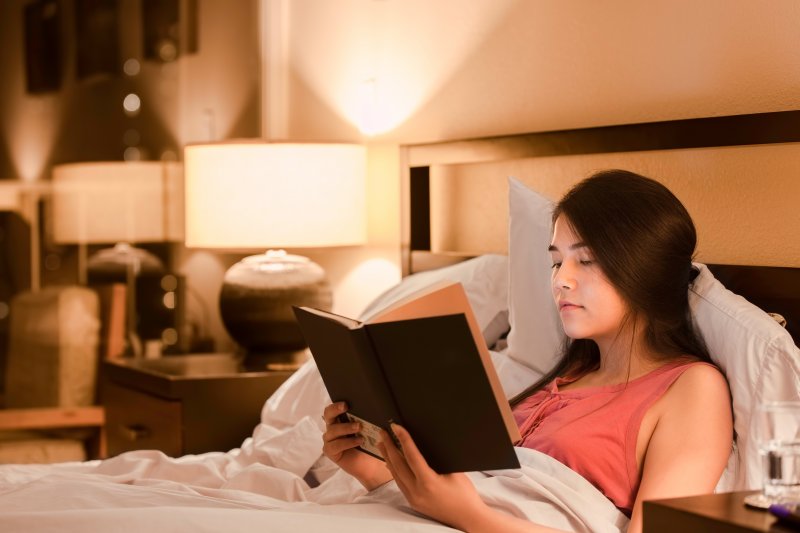 The number of people experiencing issues falling and staying asleep is on the rise, and researchers believe this is largely due to the fact that many are exposed to blue light emitted by phones and TV screens immediately before bed. According to experts, blue light delays melatonin release (the hormone that regulates sleep and wakefulness), with sleep suffering as a result. Research proves that those who make checking technology before bed a regular habit experience a more difficult time falling and staying asleep.
The number of people experiencing issues falling and staying asleep is on the rise, and researchers believe this is largely due to the fact that many are exposed to blue light emitted by phones and TV screens immediately before bed. According to experts, blue light delays melatonin release (the hormone that regulates sleep and wakefulness), with sleep suffering as a result. Research proves that those who make checking technology before bed a regular habit experience a more difficult time falling and staying asleep.
The Facts
In a 2017 study by the University of Haifa and Assuta Sleep Clinic, blue light was proven to make it much harder for a person to fall asleep while simultaneously damaging the duration and quality of rest. The study consisted of 19 healthy adults ages 20-29, who were placed in front of a computer screen between 9pm and 11pm, the hours when the body begins to naturally produce melatonin. The screen exposed them to four different types of light: high-intensity blue light, low-intensity blue light, high-intensity red light, and low-intensity red light.- After exposure to red light (at both intensities), participants experienced an average of 4.5 unnoticed awakenings
- Low-intensity blue light = 6.7 awakenings
- High-intensity blue light = As many as 7.6 awakenings
